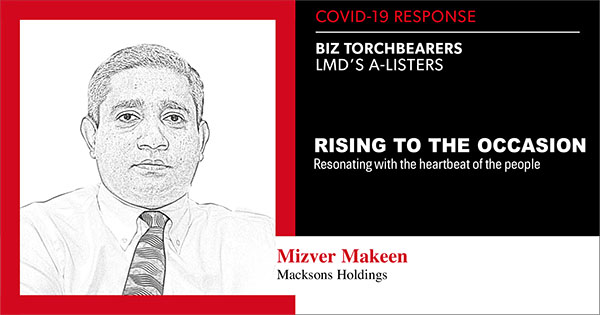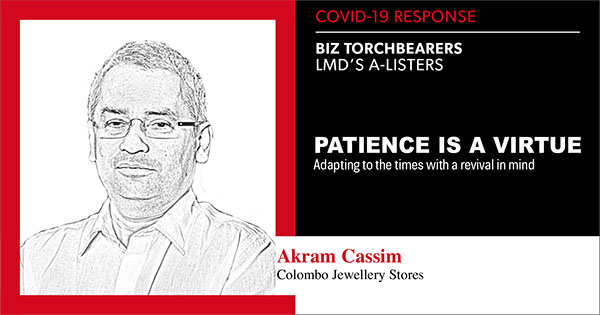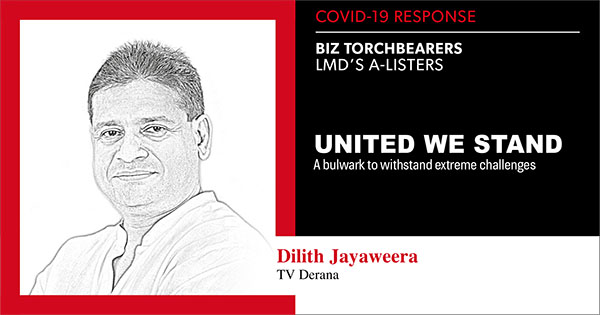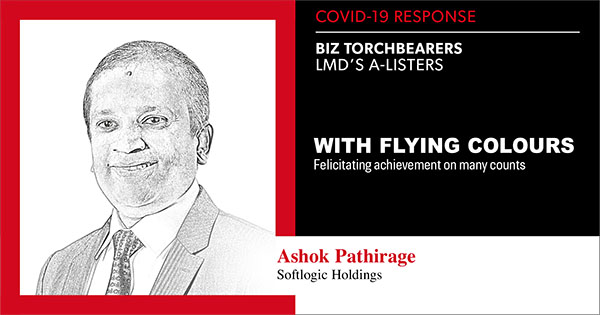Q: How has your organisation played a part in efforts to mitigate the spread of COVID-19?
As Sri Lanka’s largest private sector employer with over 99,000 employees, ensuring the health and safety of all our teams remained a top priority.
We responded rapidly by halting production in Sri Lanka and other offshore locations – even before national governments imposed lockdowns and curfews, regardless of the significant economic and operational impact of this decision.
Concurrently, our dedicated COVID-19 response teams developed comprehensive health and safety protocols covering all stages from the point where employees enter a facility to the point they exit.
As the lockdown restrictions eased, we began to open our facilities under these stringent protocols – e.g. sanitization, mandatory temperature checks, use of protective equipment, new machinery layouts with strict physical distancing and many more operational procedures, in order to eliminate all possibilities of an outbreak and mitigate its impact in the communities in which MAS operates.
Q: Has your organization participated in any community assistance endeavours – and if so, could you outline them?
The nature and extent of our business makes a majority of our initiatives community driven; and it was no different even during these unprecedented times.
We supported the government in its battle against COVID-19 by producing personal protective equipment (PPE) for front liners – a completely new range of products that wasn’t part of MAS’ extensive product portfolio.
Utilising our industry expertise, we delivered over 4,500 woven reusable water repellent PPEs, 11,000 non-woven disposable PPEs, 100,000 facemasks, an automated guided vehicle and more, to support over 100 hospitals as well as the armed forces, police, Marine Environment Protection Authority, Disaster Management Centre and other charitable foundations across Sri Lanka.
We also launched ‘Rise Up with MAS’ – a grant scheme for micro and small business owners and entrepreneurs who were severely impacted by the coronavirus and curfew that followed.
To this end, we partnered with Sarvodaya – one of Sri Lanka’s long-established community development institutions – to support 50 businesses with cash grants, as well as training and guidance, for revival through the pandemic and beyond.
Q: How did MAS support its employees to adapt to the ‘new normal’ way of work and life, during and following the extended curfew?
MAS had already implemented flexible working hours across its offices prior to the pandemic, which helped us deploy our executive cadre to work remotely. Our teams demonstrated great resilience under pressure and adapted rapidly to their new working conditions – traits in which we take great pride.
While the lockdown certainly impacted a majority of our manufacturing jobs, we ensured that team members received both financial and moral support during the crisis. We engaged with the entire team through multiple channels of communication, and this enabled us to assist them and address their concerns.
Furthermore, we reached out to banks and financial institutions, asking them to consider providing preferential credit terms and extended loan moratoriums for employees who may reach out to them directly for assistance.
And we facilitated online learning and webinars for employees on topics such as mindfulness, mental health and wellbeing, working from home (WFH), yoga, arts and crafts for kids and many more activities, to help them further balance and adapt to the lockdown restrictions.






